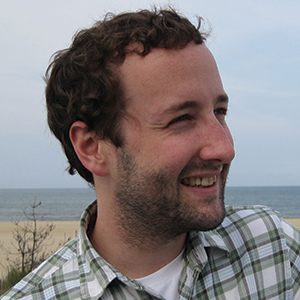-
The DCIS Dilemma
Ductal carcinoma in situ is the fourth most common cancer diagnosis in women. Some say it's not "really" cancer. But you wouldn't know that based on how it is treated.
by Sue Rochman
-
Healthy Habits
Reaping the BenefitsFollowing a vegetarian diet could reduce your risk of colorectal cancer.
by Leigh Labrie
-
Q&A
The Language of CancerResearcher David J. Hauser discusses how war metaphors may make people less likely to engage in preventive behaviors.
by Sharlene George
-
Preserving the Future
Young adults undergoing cancer treatment who may want to have children should talk with their doctors about ways to preserve their fertility.
by Marci A. Landsmann
-
From the Editor-in-Chief
Inheritance, ‘Bad Luck’ and the EnvironmentWhy do some people develop cancer while others do not?
by William G. Nelson, MD, PhD
-
From the Editor-in-Chief
The Promise of Precision MedicineThe impact of gene sequencing on the discovery and development of cancer treatments could be profound.
by William G. Nelson, MD, PhD
-
Forward Look
Genetic Testing Can Help Women With Triple-Negative Breast CancerStudy confirms inherited genetic mutations are common, regardless of family history.
by Kendall K. Morgan
-
Forward Look
Medicare to Cover Lung Cancer ScreeningIn high-risk current and former smokers, screening can reduce cancer deaths.
by Michael Eisenstein
-
Forward Look
Does Testicular Cancer Screening Save Lives?Doctors recommend self-exam, even though guidelines discourage it.
by Roxanne Nelson
-
Genomic Testing: The Risk of Knowing Too Much
Sophisticated tests can generate a wealth of information about a patient's cancer or disease risk. But they also raise serious questions.
by Alexandra Goho
Cancer Talk
The Power of Comedy
In a new play, the pain of cancer can be a chance to laugh.
by Ashley P. Taylor
Melanoma Risk in Childhood Cancer SurvivorsPeople treated for childhood cancer found to have twice the risk of developing melanoma as an adult.
by Cameron Walker
Online Second OpinionsMore than half of patients who participated in a program offering online second opinions were recommended a change to their treatment plan.
by Eric Fitzsimmons
Musical Toxicity an Effect of Cancer TreatmentStudy finding cancer treatment affects ability to play or sing music highlights need for physical therapy, experts say.
by Kyle Bagenstose















